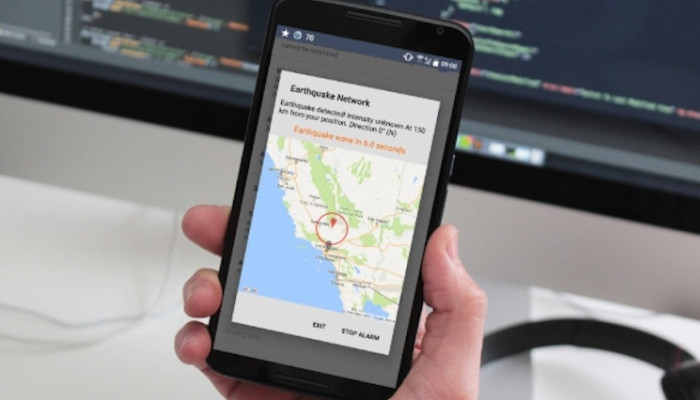Google expands its Android-based earthquake detection system
 Google is expanding its Android-based earthquake detection and alert system, filling in gaps in places where there are few seismometers and no early warning systems. Starting today, the program that launched in California last year will also be available in Greece and New Zealand. This also marks a new step for Google; it’s the first time the company will handle everything from detecting the earthquake to warning individuals. Android devices will first sense waves generated by quakes. Google then analyzes data from the phones and sends out an early warning alert to users in the affected area. Users will get the alerts automatically unless they opt out of the service. When Google started on this endeavor, it worked with the United States Geological Survey and the California Governor’s Office of Emergency Services to send earthquake alerts to Android users in California. This feature is now available in Oregon and will expand to Washington in May. Last year, Google started gathering earthquake data from phones. It then used that data to provide information to users if they searched for “earthquake” or “earthquake near me” on their phones. Google’s system works because each phone is already equipped with an accelerometer, which can detect movement. The accelerometer can also detect primary and secondary earthquake waves, almost acting as a “mini seismometer, joining millions of other Android phones out there to form the world’s largest earthquake detection network,” according to Google. Seismometers are devices that detect ground movement, like earthquakes. “It’d be great if there were just seismometer-based systems everywhere that could detect earthquakes,” Marc Stogaitis, principle Android software engineer at Google, told The Verge last year. Because of costs and maintenance, he says, “that’s not really practical and it’s unlikely to have global coverage.” There are some limitations to Google’s system. People closest to the quake probably won’t get much advance warning since they’ll be the first ones to detect the quake. But their phones will help give a heads-up to others farther away, giving them crucial time to take shelter. Android is the leading OS system for smartphones, so this service has a lot of room to grow. Eventually, Google could develop an API based on its earthquake detection system that could have farther-reaching effects. Other systems could use the API to let people off an elevator or open firehouse doors before losing power, Dieter Bohn wrote for The Verge last year. That’s still pretty far off but could make a huge difference in keeping people safe during future earthquakes.
|



















